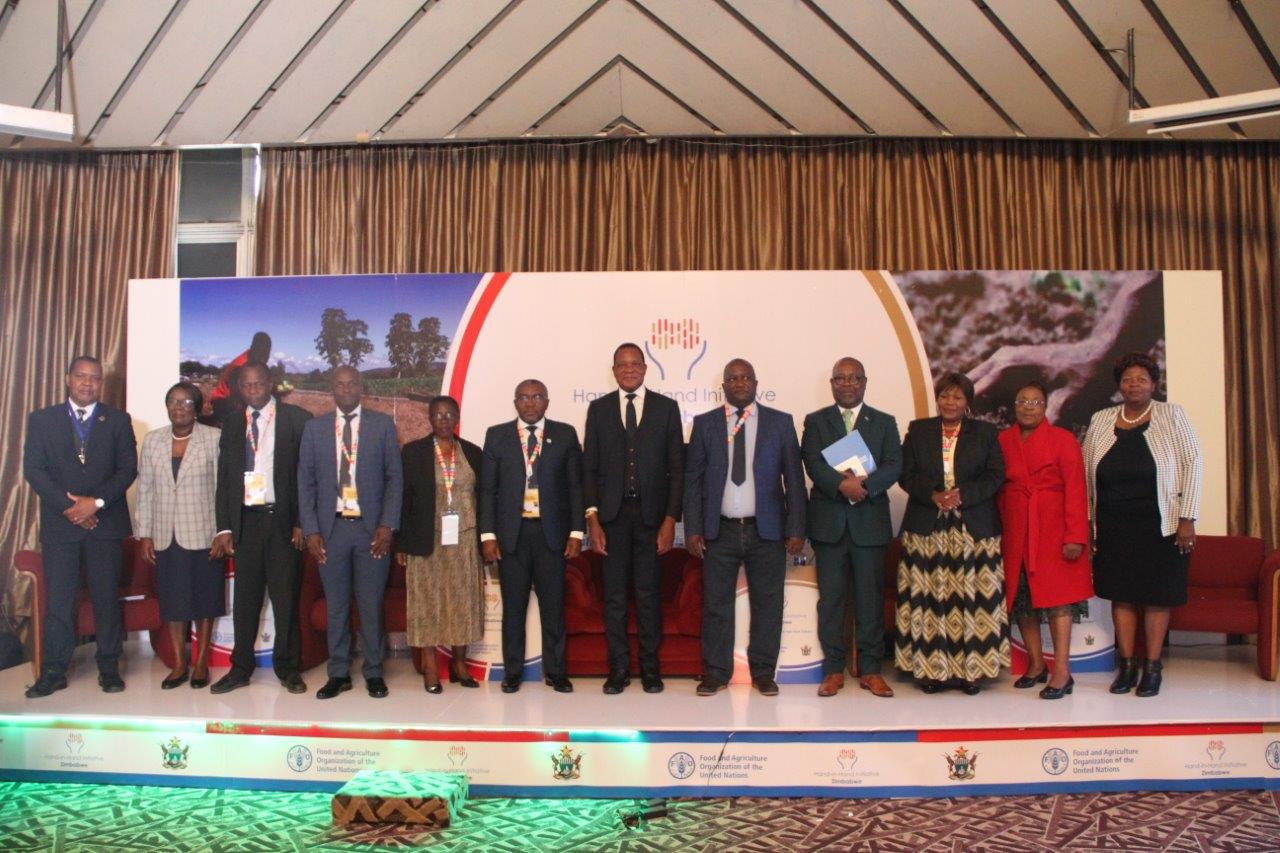|
Getting your Trinity Audio player ready...
|
Zimbabwe is hosting an Agriculture Investment Forum under the Hand-in-Hand Initiative, which is forging stronger partnerships for increased investments to transform agro-food systems.
In his remarks at the 3-day workshop that kicked off in Harare today, Dr. Anxious Masuka, the Minister of Lands, Agriculture, Fisheries, Water, and Rural Development said the gathering held under the theme: “Accelerating Investments in Agro-Food Systems” is meant to interrogate investment opportunities in Zimbabwe’s various provinces.
“This is on the back of experiences gathered in Rome last year, and our own Hand in Hand Matchmaking Platform in Victoria Falls. As we gather here, we are highlighting each province’s potential. In doing so we must be systematic, guided by what we want to achieve. The overarching imperative is development, in the context of Vision 2030, as eloquently espoused by the President, His Excellency, Dr. ED Mnangagwa on the Vision of becoming a prosperous and empowered upper-middle-income economy.
“This is under-girdled by the National Development Strategy 1 (NDS1) and Agriculture and Food Systems Transformation Strategy (AFSTS). Both NDS1 and AFSTS are appropriately under review, and these Provincial Investment Plans must provide raw materials for developing a robust AFSTS. The Food Systems dialogue outcomes, must of necessity too, be mainstreamed into these cardinal documents. The President then launched the Agriculture and Food Systems Transformation Strategy (AFSTS) in August 2020 to ensure (1) food security (2) elimination of imports (3) increased and intensified exports (4) increased value addition and beneficiation (5) increased employment (6) and improved livelihoods,” Dr. Masuka said.
In his opening remarks, Dr. Abebe Haile Gabriel, the FAO Assistant Director-General and Regional Representative for Africa said the workshop was a successor to last year’s successful High-level Roundtable on Enhancing Partnerships, Defining Priorities and Targeted Investments for agricultural transformation in Zimbabwe.
He said that the event showed evidence of Zimbabwe’s leadership in implementing this Initiative, with strong ownership by the Government.
“FAO appreciates the exceptional leadership you have shown, and the trail-blazing approach that you have adopted since the Initiative was launched in November 2020 in the country. It is heart-warming that we are reconvening once again to take stock of where we are and what we still need to do to accelerate investments for food system transformation in the country.
“Globally, the Hand-in-Hand Initiative has three core objectives that align specifically with Sustainable Development Goals 1, 2, and 10. These three SDGs are, in turn, Eradicating poverty, Ending hunger and all forms of malnutrition, and Reducing inequalities by accelerating agricultural transformation and sustainable rural development,” he said.
Dr. Gabriel said the Initiative contributes to the attainment of all the other SDGs and supports the objectives set forth in the African Union’s 2014 Malabo Declaration on Accelerated Agricultural Growth and Transformation for Shared Prosperity and Improved Livelihoods in African Agriculture.
Dr. Patrice Talla Takoukam, the FAO Subregional Coordinator for Southern Africa and FAO Representative for Zimbabwe, Lesotho, and Eswatini alluded to the importance of investments that are required to transform agriculture and food systems in the country.
“FAO remains committed to providing technical support to the Government of Zimbabwe and we greatly appreciate the collaborative partnership between FAO and the Ministry of Lands Agriculture, Fisheries Water and Rural Development as well as other key stakeholders here, present.
“As we all know, our collective objective is to defeat poverty, hunger, and malnutrition and the Hand-in-Hand Initiative provides a valuable framework to contribute to the attainment of this objective. Through the facilitation of SDG-aligned Investments into Agro-Food Systems, the country is better able to attain its socioeconomic objectives as well.
“This Investment Forum will allow us to look at the progress we have made so far, and the steps we still need to take towards our ultimate destination, harnessing our different capabilities to achieve greater results and impact,” he said.
Agricultural development causes rural industrialisation. In that regard, Minister Masuka urged stakeholders to clearly articulate this nexus in investment plans.
“It is rural industrialisation that will cause rural development, and we must illuminate this important link. It is rural development that will be catalytic for the attainment of Vision 2030, and we must show a strong cause-effect relationship, while concurrently persuading everyone to buy into this narrative,” he added..






